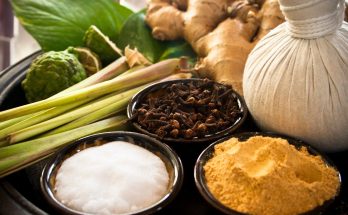The respiratory system is lined by a mucous membrane which protects the track and also secretes mucus. This mucus has protective property by entrapping the dust/foreign particles/bacteria/viruses which are inhaled. It is thin and colorless when secreted in usual quantities and in healthy condition. When we fall ill and on exposure to many such substances and bacteria/viruses, the secretion becomes thick and colored. This thick and sticky collection of mucus that is usually present in the back of the throat is called ‘Phlegm’. This phlegm formation is associated with a sensation of constant throat clearing, cough, throat ache, fever, running nose.
Home remedies to tackle phlegm in the throat are:
1 Saltwater gargles
Saltwater gargles provide good relief from phlegm. Gargles with lukewarm water with a bit of salt added should be done three-four times a day. It helps to liquefy the mucus, kills the bacteria and provides a soothing effect in the throat. A randomized American study has shown that saltwater gargling three times a day, with or without cold/flu infection can help in the reduction of respiratory infections by 40 percent. You must know gargling also loosens thick mucus, which can remove irritants like allergens, bacteria, and fungi from the throat. So, salt water gargle.

2. Steam inhalation
Steam inhalation helps to decongest the nose and clears the nasal secretions which eventually lead to post nasal drip and form phlegm. It also provides a soothing effect in throat and nose. It also removes clogged up paranasal secretions which are usually also affected by pharyngitis and rhinitis. Steam inhalation should be done two-three times a day including after getting up in the morning and before sleeping in the night.
3.Oral fluids/water
Most of the cases of phlegm are secondary to viral pharyngitis and rhinitis. Having a good oral water intake is important in viral infections. It reliefs body aches in general and helps to combat viral infections. Cold water should be avoided to prevent further aggravation of the problem. A healthy individual is advised to drink at least 8 glasses of water every day, but during illness, a person may need to drink more water to compensate for the accumulation of phlegm in the thoracic region.
4. Fruits and Vegetables
Fruits and Vegetables are the best source of antioxidants and help in fighting against nasal infections and chest ingestions. Specifically, fruits those are rich in vitamin C and help the body in combating infections. Lemon in particular also loosens up the phlegm. For example, fruits such as berries, citrus fruits, tomatoes, leafy greens, broccoli, brussels sprouts, bell peppers and winter squash are enriched in antioxidants and nutrients. Alternatively, Foods such as dates, papaya, wheat flour based food, etc. should be taken.

5. Ginger
Ginger has antibacterial and antiviral properties. It also decongests the nasal cavity and throat. It can be ground and had with honey or it can be added to warm lemon juice or tea. Alternatively, you can chew on 3 or 4 raw ginger slices several times a day.
How to use:
- Add two cups of water to the pan and heat it. Once the water begins to heat, throw 6 or 7 ginger chunks into the water.
- You may even consider adding 1 teaspoon of black peppercorns for added benefits. Cover the pan with a lid and let it boil for a few minutes.
- After that, lower the temperature and let it cool. You will observe the color of water changes to somewhat yellowish.
- Use a strainer to remove the ginger pieces and peppercorns and pour the tea into the cup.
- You may consider adding a natural sweetener such as honey.
Consume this mixture 2-3 times a day until it de-congests your phlegm instantly.
6. Olive Oil:
A scientist has proven that Olive oil is one of the best Anti-Inflammatory and Anti-Allergy Agents as well as the best source of unsaturated, heart-healthy fat. It contains a substance oleocanthal, which has properties similar to anti-inflammatory drug ibuprofen which is often prescribed by doctors for treatment of chest congestion, bronchitis, etc.
If you are prone to catching mucus and nasal ingestions quite often, we advise you to try swapping saturated fat sources in your diets, such as butter and desi ghee, out for olive oil.
7. Turmeric:
Turmeric scientifically named as Curcuma longa is a yellow colored herb with medicinal properties. The antibacterial and antiviral action of turmeric makes it the best remedy to treat phlegm accumulated due to consistent cold or a cough in the nasal region. Turmeric consists of a compound curcumin that aids in relieving the chest congestion that develops in people suffering from a chronic cough.

How to use:
- The best way to use Turmeric is by adding pure turmeric powder to boiling water and inhaling the vapors. Cover yourself with a blanket while inhaling the vapors for best results.
- Alternatively, you may also mix turmeric powder in warm milk and drink it twice a day. This remedy works better for a chronic cough or cold caused by bacterial infections.
Conclusion:
One of the most important factors that play in recovering from phlegm is diet related restrictions associated with a persistent cough or cold. A patient must avoid intake of oily and spicy food.
Over-the-counter, if no relief is seen through the natural remedies, you must consult your healthcare doctor and he may prescribe you medicines like painkillers, decongestants, paracetamol, cetrizine can be taken to get symptomatic relief.


